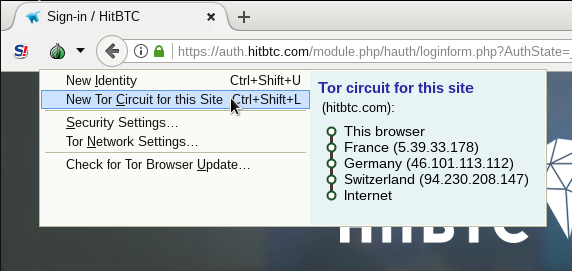Tips for Using Non-KYC Exchanges to sell Bitcoin Fork Value

Introduction
At forkdrop.io we believe in preserving the anonymity of the owners of BTC on the Bitcoin network should they choose to remain anonymous. A side-effect of bitcoin forks is that there is now monetary incentive for a long-term BTC holder to interact with an exchange service should they want to redeem the value of the fork and airdrop coins which have been credited to them.
As part of KYC/AML regulation in many jurisdictions, cryptocurrency exchange businesses are required to record the government-issued identity documentation of the people that sign up and use these services. Users that wish to remain anonymous may wish to use services that are not subject to this regulation. At forkdrop.io we track the KYC requirements of exchanges in our exchange directory. to assist bitcoin holders find exchanges they wish to sign up for.
A downside of using non-KYC services is that you are reliant on the reputation of the service to uphold their end of your business interaction. In the event of a dispute over value ownership, moving towards legal recourse against them requires revealing your identity. This creates additional hazards you need to navigate, which we will cover in this article.
Alternatives to Exchanges
Since many Bitcoin fork and airdrop coins aren't widely supported by exchanges, you options for an acceptable exchange may be limited.
One option that may be worth considering is finding an OTC broker that is willing to make an offer for your coins. There are some that will strike deals with you while remaining anonymous, however this is at your own risk for vetting their reputation. Also, being cautious that you might be dealing imposter posing as a high-reputation individual in order to steal your coins. A counterparty that is using PGP for proving their identity and has a cited history of good reviews is a good sign. For example, we have a PGP key for forkdrop@protonmail.com with fingerprint 6FCD1897 listed on MIT's PGP server. This allows you to send us encrypted messages and also prove to you our identity to prevent imposters. This is a reasonable threshold of competence to ask of your counterparty.
If selling your more obscure coins anonymously is a bit more effort than you care to expend, an alternative is that you can consider anonymously donating these coins to a good cause:
The KYC Trap
We like to assume the best of the cryptocurrency businesses out there, but unfortunately some bad actors are inevitable in any business sector. If you deposit money to an account registered without KYC, the business could choose to freeze your money and challenge you to provide your identity documentation and prove the origin of your coins. If you do not provide it, the exchange will keep your money.
We have extensively documented one such occurrence when an anonymous user was forced to reveal their identity and prove an extremely high threshold of evidence to persuade that the transactions were not part of money-laundering activity. This user made a critical mistake in depositing over the normal $10,000 USD amount of value which is usually the trigger for KYC/AML in many jurisdictions. However, the user was fortunate to have sufficient documentation of the origin of the coins and successfully recovered the value. It is not clear that the user could have recovered them had the original purchase of BTC was not extensively documented and not directly traceable to employment income.
Also, many of the exchanges that do not take KYC information also do not reveal their own identity. This opens up the possibility of the exchange shutting down and keeping your money without you knowing who to seek recourse against.
If you really wish to not give up your identity, you must accept the dangers of operating in this arena. To help your chances, stick to low-value transactions well below the $10,000 USD threshold and be prepared to walk away from the value should you be challenged for identity. Also, do be sure to perform some research on the brand reputation of exchanges you are about to deposit value on.
Private Email
We advise you to use Protonmail for registering and hosting contact email address for creating logins on exchange websites. This service is free and it has additional features for storing your messages in cypher text. To get a Protonmail account may require the ability to receive a SMS or email, which might be a leak of identity. We cover suggestions for a process for setting this up without revealing identity in a separate article:
Private Browsing
We advise you to use Tor Browser. Even if you have a VPN to hide your source IP, a normal browser could still handle cookie information and leak other identifying information in the HTTP request headers. Tor Browser is configured by default to be quite safe and even has additional settings such as disabling Javascript if there is a high-end security reason.
Many exchanges have captchas to help filter out bot activity. Accessing from Tor can make the captcha process difficult since there is a higher suspicion that you are not a human visitor. It can be annoying, but if you get blocked entirely, you can try
New Tor Circuit for this Site option in the green onion drop-down menu of Tor Browser. It might take several times, but you can get to a solvable captcha eventually:

By default, TAILS uses the Tor Browser and routes all traffic through Tor. This is an excellent tool to be using for your exchange interaction:
We also cover installing and running Tor Browser on a Ubuntu live-boot session: